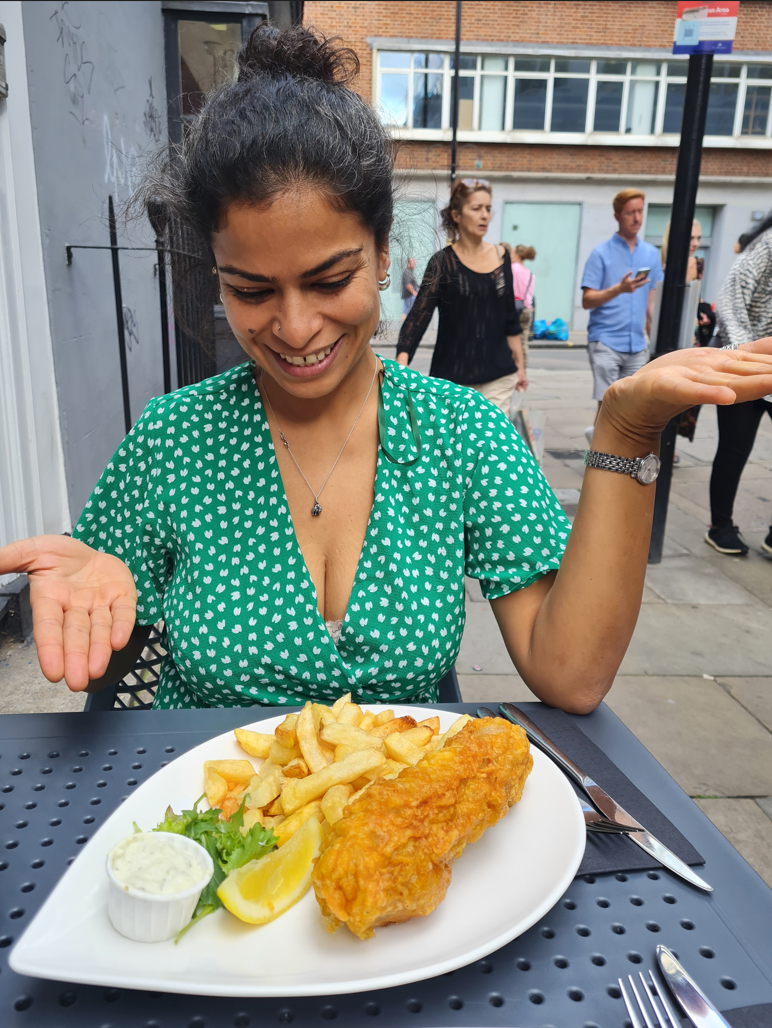
{*Did you know you can write on Elephant? Here’s how—big changes: How to Write & Make Money or at least Be of Benefit on Elephant. ~ Waylon}
~
I’ve had a great 13-year run as a vegan—been the fittest ever, saved a ton of money eating all whole foods, developed a bunch of recipe ideas for my cookbook, earned some money teaching vegan cooking, felt good about minimizing my impact on ecological damage, blah blah, I can go on forever. Oh, and I also lived by my values of compassion for all beings—not had any animal killed on my account or a mother cow separated from her baby.
But I’ve seen the middle ground now, courtesy of some enlightening facts and sources, and also I can’t be rigid in my values to be compassionate and responsible. That’s what the ex-vegans would have me believe.
Not really, though.
Ex-Vegan is a fallacy. You cannot be one.
If nothing else, purely because of accuracy and semantics. Vegan is an ethic and if we change it, then it wasn’t an ethic in the first place. An “ex plant-based dieter,” yes. Klaus Mitchell talks about this recent influx in this video.
With 2023 being the year of “ex-vegans” fighting the good fight against Meta’s algorithm to stay relevant, along with them looking to cultivate followers of a different genre within the dieting fad culture, here are some gems.
One Instafluencer:
“This post shares my honest experience moving away from a vegan diet because it was no longer supporting my health.”
Vegan is not a diet. Vegan isn’t about “our” health. It’s about the health, life, pain, and sentience of all beings. But then all these plant-based dieters are “dieting coaches,” with no real credentials in nutrition but with an Instagram following of a few thousand.
Health benefits are a delightful side-effect of following a vegan life. But not necessarily either. It is a not a given that if we eat plant-based, we’ll be healthy or all our physical miseries will vanish.
French fries are vegan, onion rings are vegan, bread is vegan, potato chips are vegan, oreos are vegan (yes!), and all that vegan cheese floating around these days.
A lot of vegans, more of the activist variety, may not care about the health aspects of eating vegan and enjoy a “live to eat” routine. Why? Because that is human nature and preference and has nothing to do with our ethics.
Also, why announce it? Eat what you want; it’s a choice—that’s the common refrain, isn’t it.
What about the trope:
How do you know someone’s a vegan?
Don’t worry, they’ll tell you.
Funny. Not funny. Not funny, because not true. To be addressed later.
Back to why announce? You don’t owe anyone an announcement or explanation. Choice, right. Then why write a blog, make a big deal of an Instagram post? Wondering if it has anything to do with eyeballs, algorithms, attention—it’s a tough world out there, this social media playground. Reminds me of, “No publicity is bad publicity.”
A lot of these posts start with “I know I’ll get a lot of hate for this but…”
Don’t get hate then, don’t subject yourself to it then.
But wait, how the algorithm will bloom when all your vegan followers come at you with comments correcting you that you weren’t vegan, just followed a plant-based diet, or those who will encourage you and offer to help navigate with whatever your roadblock was.
~
Coming back to vegans announcing their identity (psst, it’s not our identity by the way, just one of the ethics we live by). Just like being honest, being faithful, being a good parent isn’t an identity, so isn’t being vegan. It’s following our values.
Being the only vegan at the table (and not announcing it)
So, here we are, a rather large gathering of an ex’s extended family, and I get seated next to a fun cousin I’m meeting for the first time. It is the eve of my ex and I leaving for our three-month vacation in warmer climates. I am excited to travel, see family and sun. We’re at my favorite restaurant, which has a decent vegan selection, and since I’ve been there enough, I didn’t even have to look at the menu, let alone waste the hostess’ time in confirming ingredients; she had a large table to cater to, after all.
So, I go ahead and order that amazing tamari veggie rice bowl with pickled beets, all veggies locally sourced.
But, of course, someone in their excitement had to announce to the table that I was vegan and there are such amazing vegan options here. In that instant, my heart went, Oh.
I just wanted to enjoy my food. Just as you don’t have to explain your choice of why pizza over pasta or steak over chicken, I don’t have to explain anything about my food choices unless there is reason.
There was no reason. So I did what I resort to often—smile. Also, the introvert label comes in handy at such moments and sometimes people leave me alone. Not that day though.
The cousin went on to explain to nobody in particular how food is an individual’s choice and that vegans should not be pushy and judgmental.
Mind you, so far, there has not been a peep out of me, except for my menu selection to the hostess.
I smile some more.
Food arrives. She’s still going on. Did someone mention pushy a while ago?
And then she says something that got under my skin a bit, but the situation required me to be tactful.
She said, “You know what I hate the most—vegans calling it oat milk, almond milk, and so on. It’s not milk!”
“It is my life’s mission to correct this.” She continued. “So every time I am in a café—although I know the poor barista can’t do anything about it—I make it a point to lodge my complaint that non-dairy milks should not be called milks.”
Deep breath.
By now, I really just wanted to enjoy my food and not have any conversation about food. So, I smiled some more, and said, “I am with you on this one, Mary-Jane. I’d add peanut butter and hot dogs to the list too.” I zoned out after that.
~
So, most people on the internet who take the “ex-vegan” route to fame, harp on their affected health, but then I found a couple who wanted to come across more authentically and cited their doubts on “the ethics of eating a plant-based diet”
In Gaia’s words, “My reflection on the subject had become so intense and overwhelming, that I could no longer look at my plate of quinoa without thinking of those poor ladies in South America consuming their hands and starving themselves just to produce my ‘cruelty free’ meal.”
Consuming their hands…! I am not even going to address that one.
She also talks about cotton and avocados. I’m pretty sure, though, none of us eat cotton, and also those of us who wear cotton don’t do so because we are vegan. Anyway.
I never tasted quinoa for the first 35 years of my life, give or take a couple. Same for avocados. These are still not familiar foods in India, which houses around 350 million vegetarians. No quinoa bowls, no avocado toasts, no acai smoothies (I still haven’t tried this one)—how do all these people survive!
But her masterstroke:
“On top of it, I couldn’t stop thinking about all those poor rabbits, birds, insects, and lizards that get unjustly killed every time a crop field is created.”
Fact check: If we combine pastures used for grazing with the amount of land used to grow crops for animal feed, animal agriculture accounts for 77 percent of global farming land. It takes up most of the world’s agricultural land, but it produces just 18 percent of the world’s calories and 37 percent of total protein.
And even the 23 percent that is used for produce for human consumption, ahem, I am pretty sure more fries are consumed with burgers than by the measly vegan populace.
Another one says, adding to the same argument: “No diet is free from death.”
Yes, we all have a suffering footprint.
But because the potatoes, you and I both eat, cause inadvertent death of some insects, so somehow, it’s okay to breed and kill cows, pigs, dogs, rabbits for food. You are still killing more beings than when you were not for the 11 months you were on a plant-based diet.
Who is a vegan? What is veganism?
Veganism is the practice of abstaining from the use of animal products and an associated philosophy that rejects the commodity status of animals.
According to the Vegan Society definition: “Veganism is a philosophy and way of living which seeks to exclude—as far as is possible and practicable—all forms of exploitation of, and cruelty to, animals for food, clothing or any other purpose; and by extension, promotes the development and use of animal-free alternatives for the benefit of animals, humans and the environment. In dietary terms it denotes the practice of dispensing with all products derived wholly or partly from animals.”
Food is a small aspect of it. Vegans do not use any products that use animals or animal products including but not limited to clothes, cosmetics, cleaning products, home decor, entertainment (zoos and circuses). Needless to say, animal testing is not acceptable either.
I will not be the pushy vegan today. But I will encourage you to read, research, explore why it makes sense to reduce and ultimately cut out the use of animal products from our life. Read, ask about the ethics of it, about the environmental benefits (how not to add to the climate crisis), and of course, our health.
And if you’re still wondering, no I am not an ex-vegan. It’s April 1st and I also don’t mind a little click-bait to get attention to a value I believe everyone (every being) will benefit from.
~
{Please consider Boosting our authors’ articles in their first week to help them win Elephant’s Ecosystem so they can get paid and write more.}











Read 35 comments and reply